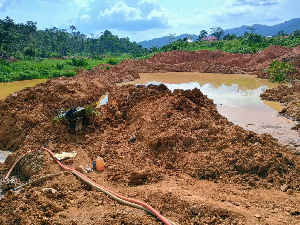The Chief Executive Officer (CEO) for the Association of Ghana Industries (AGI), Seth Twum Akwaboah, has described the country’s business environment for this year as challenging. According to him, hikes in utility tariffs, fuel prices increment, policy rate at 24.5 percent – leading to high interest rates, very high levels of inflation including depreciation of the cedi is unprecedented; and these have caused lots of businesses to find ways of surviving, while a few have had to reduce production. “So, the business environment has been challenging in an unprecedented situation yet we are still in business; this shows the resilience of Ghanaian business-persons. I am here to encourage you that despite the challenges we should still continue to work hard. The Russia-Ukraine war has escalated the situation,” he said. Mr. Twum Akwaboah was speaking at the 23rd Regional Annual General Meeting (AGM) of the Ashanti, Bono, Bono East and Ahafo Regional branch of AGI. The meeting was held on the theme ‘Leveraging Public Private Collaboration to Accelerate Sustainable Industrial Development’. The Regional President for AGI, Kwasi Nyamekye, appealed for government to, as a matter of urgency, lessen the plight of manufactures regarding rising interest rates and the cost of power. He further tried to rally for support from government, financial institutions and other organisations to make resources available to help strengthen the work of their members and make them competitive. “Ghanaian businesses require long-term funding, tax incentives; farmers need some mechanisation to produce enough raw materials to feed the factories. The AGI will continue to advocate for support from government and organisations to strengthen its members and Ghanaian industries. “Let us also support the Association to be resilient in its advocacy by participating fully in the programmes organised as we seek stronger collaboration to power the private sector. We would like to appeal to government that they do something about the interest rate, the energy bills, among others. “Extensive engagement of the private sector is key to the identification of suitable policies to make the sector strong and competitive. Policies to transform Ghana into an export-oriented country must be deliberate, especially now, to take advantage of the AfCFTA,” he added. The Ashanti Regional Minister, Simon Osei Mensah, giving a keynote address at the AGM expressed government’s commitment to making the country an industrial hub and exporter of processed goods through its flagship programme One District-One Factory (1D1F). “We are determined to change the Ghanaian economy’s nature from one that depends on imports and export of raw materials to one focused on manufacturing, value addition and export of processed goods. “Government has invested in developing and promoting the manufacturing and service delivery sector through several policy initiatives such as 1D1F, through which a total of 125 factories have been supported with funds and are in operation at the moment,” he noted.
Business News of Sunday, 16 October 2022
Source: thebftonline.com













